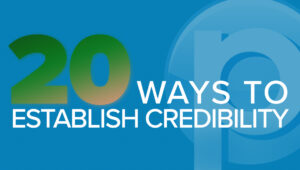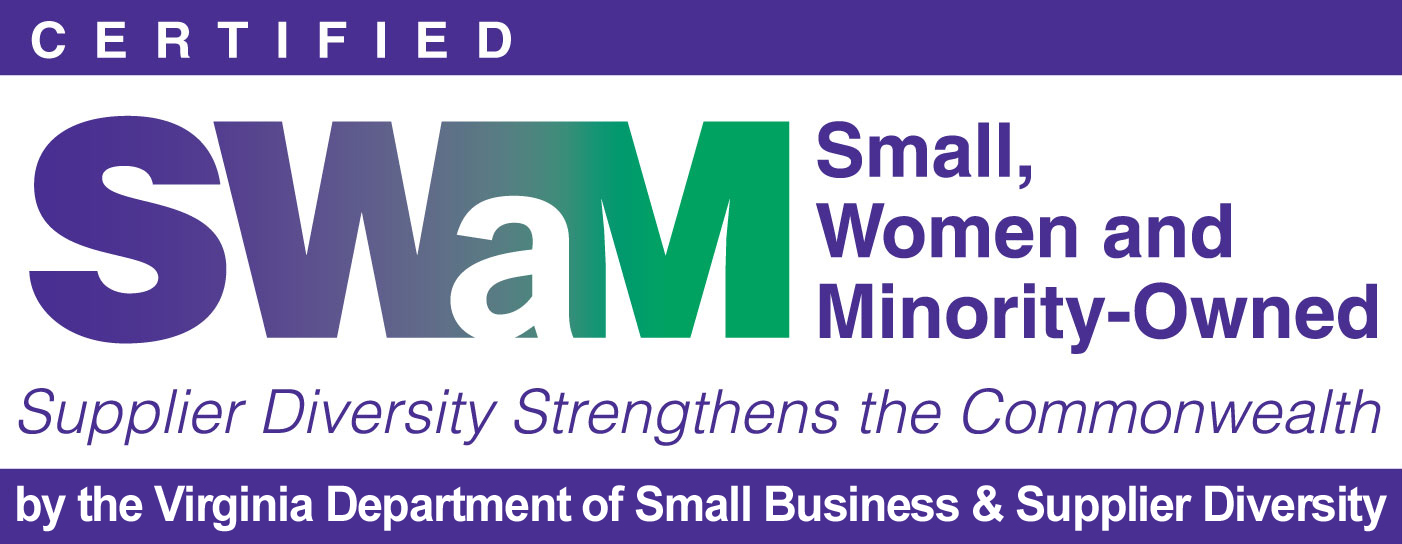 When we interact with others, either personally or professionally, one of the most important factors is credibility. We want to know and work with people and businesses we believe to be trustworthy. Establish your own credibility with these 20 tips.
When we interact with others, either personally or professionally, one of the most important factors is credibility. We want to know and work with people and businesses we believe to be trustworthy. Establish your own credibility with these 20 tips.
1. Articulate your mission. What drives you to wake up and do what you do each day for work? Make sure you’re communicating this to your target audience(s). People believe in those who are passionate about the things they do. So, share your passion!
2. Be an expert. Part of the very definition of credibility is expertise. You trust someone because he or she is an expert in the field. Make it your business to truly know your business. Stay current in your field. Attend conferences, read journals—wherever there are conversations about the latest advances or practices—be sure you’re following.
3. Stick to your niche. We don’t mean you should make yourself small in this world. Rather, resist the urge to be and do all the things for all the people. You have a valuable and specific set of skills. Use them. Amaze people with them. But be careful when it comes to expanding into areas that aren’t necessarily your forte. It is better to do a few things exceedingly well than many things less competently. Credibility is about being able to deliver on what you promise. So, promise only that which you can deliver well.
4. Share your knowledge. Be generous with what you know. Look for opportunities to demonstrate your subject matter expertise. Contribute to conversations in your field. Post (or respond to posts) on LinkedIn relevant to the work you do. Be a guest blogger or podcast speaker or journal contributor. By sharing what you know, you establish yourself as an expert.
5. Know what you don’t know. Many a small business has opened with a wish and a prayer. It’s okay if you don’t yet know all the things, but it’s important to figure out what gaps in education or experience you have and then fill them.
6. Be a perpetual student. New technologies, different generations of potential customers—the world of business is always changing and what worked yesterday may not be what works tomorrow. You limit opportunities for growth when you stop learning. So, while you don’t have to stay in school forever, you should see the world as your classroom and avail yourself of every opportunity to continue to expand your knowledge base.
7. Let your work speak for itself. An exceptional product or service is the world’s best advertisement. Do your best work always.
8. Strive for excellence. Whether you’re working with your customer base, your team, or colleagues in your field, aim to make it a positive experience. Note that we said strive for excellence, not “be perfect.” No person or business can do everything perfectly all the time. But you can make it the bar you aim to clear.
9. Ask for feedback. Feedback is another tool for learning. Whether it’s a customer satisfaction survey or an open-door policy (or suggestion box) for your team members, ask for and be open to receiving feedback. What do people love about your product/service? Where have you missed the mark? How does your team feel valued or underappreciated? All feedback, except that of the troll variety, helps you and your business. It informs what you continue to do and what you need to do differently.
10. Be accountable. When you do miss the mark—and you’re human, so you will—own your mistakes. Address any missteps or issues with an intention of correcting them. When you know better, do better.
11. Provide outstanding customer service. Excellent customer service doesn’t necessarily mean you need to be flawless. (Remember what we said about the difference between striving for excellence versus being perfect?) It means that you are 100% committed to customers being satisfied that they’ve been heard and that their needs have been met. A mistake handled particularly well can entice customers to speak well of your business too!
12. Plan to fail. Rather than just retroactively remedying mistakes, be proactive about potential future issues. Whether it’s systems you have in place, your business plan (or lack thereof), your staffing (or lack thereof), where are you are particularly vulnerable to difficulties? Plan to strengthen those areas. Even if you don’t have the time, money, or resources now to fix the broken things, you can prioritize what will make the greatest impact on your bottom line and plan accordingly.
13. Hone your communication skills. Communication is key to building and maintaining credibility, and it’s an integral part of several of the tips we’ve shared here. Credibility-building communication articulates your mission, distinguishes your brand and marketing, and relates to how you speak to (and listen to) your team. Words matter—use them intentionally.
14. Walk the walk. Say what you mean and do what you say. Not just sometimes, when it’s easy or convenient, but when it’s hard too. Especially when it’s hard. When you are a person of your word, your word means more because people know they can rely upon it.
15. Get folks talking. It’s good if you say what you stand for and how your business operates. It’s great if you do what you say. It’s better still if you’ve built and operated your business in such a way that others are talking about what you stand for and how your business operates. When you run a business (and a life) with integrity, a wonderful side effect is that your efforts are conveyed to those with whom you interact. And happy customers are more inclined to speak well of you too. Be warned here that the converse is also true, which is why the “how” of your operations is so very critical.
16. Rally ambassadors. Don’t be shy about asking for testimonials or reviews when you know you have a pleased customer, vendor, or colleague. Word of mouth is an incredibly powerful marketing tool. (It is also the best form of validation for the effort you make and the work you do!)
17. Respond to the critics. Respectfully and with humility (unless they’re trolls, and then respond with silence.) Why are they displeased? What could you have done better? How can you make it better for them? Fix what you can. Convey that you’re sorry you didn’t get it right this time but that you’ll do better moving forward. And then do better.
18. Be transparent. Transparency leads to trust, and trust leads to credibility. Be open and honest about the business of your business—your sourcing, pricing, and revenue for example. Keep in mind that being transparent doesn’t mean revealing your secret sauce. But it does mean that you’re straightforward about how you captain your ship.
19. Be consistent. You know that restaurant that makes that one dish you love and go back for time and again? Ever go on an off night when it didn’t deliver on its usual promise and feel disappointed? Aim not to disappoint and to deliver consistently on what you promise. Be known for being the business that can be relied upon.
Most importantly…
20. Be authentic. Don’t be who you imagine others want you to be or promise what you believe others want you to deliver. You are not meant to fit yourself or your business into someone else’s mold. Be authentically you and deliver your unique value proposition to the world.


